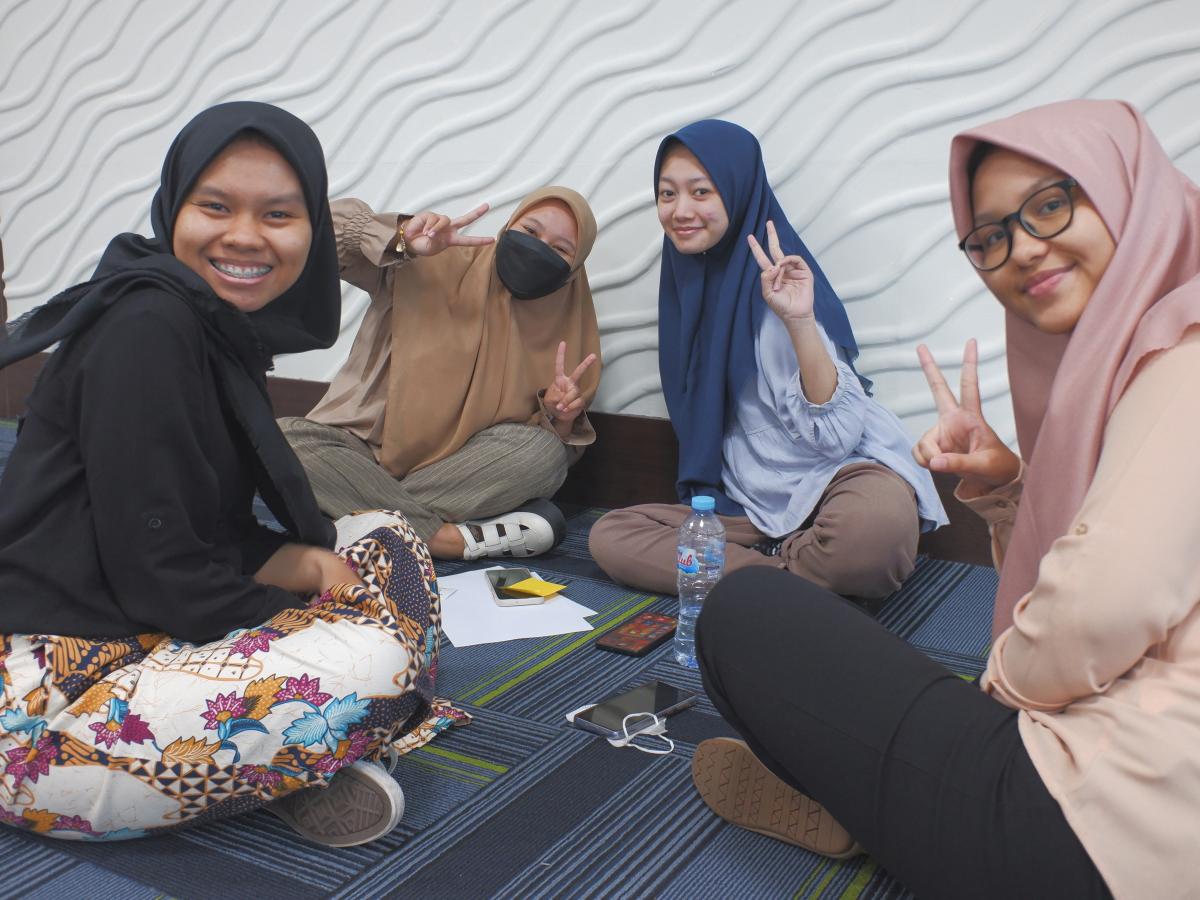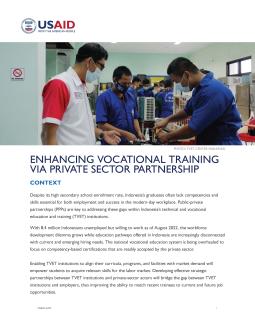Context
Despite its high secondary school enrollment rate, Indonesia’s graduates often lack competencies and skills essential for both employment and success in the modern-day workplace. Public-private partnerships (PPPs) are key to addressing these gaps within Indonesia’s technical and vocational education and training (TVET) institutions.
With 8.4 million Indonesians unemployed but willing to work as of August 2022, the workforce development dilemma grows while education pathways offered in Indonesia are increasingly disconnected with current and emerging hiring needs. The national vocational education system is being overhauled to focus on competency-based certifications that are readily accepted by the private sector.
Enabling TVET institutions to align their curricula, programs, and facilities with market demand will empower students to acquire relevant skills for the labor market. Developing effective strategic partnerships between TVET institutions and private-sector actors will bridge the gap between TVET institutions and employers, thus improving the ability to match recent trainees to current and future job opportunities.
Partnerships for Productivity (PADU) Activity
USAID’s Partnerships for Productivity (PADU) Activity will enhance critical investment in TVET institutions via private sector partnerships with vocational training centers called Balai Latihan Kerja.
USAID PADU provides technical and advisory services to the Ministry of Manpower in developing sustainable private-sector partnerships, improving workforce readiness of youth with a strong focus on engaging women across all initiatives. USAID PADU is active in: East Java, North Sumatra, Banten, and South Sulawesi.
Anticipated Results
TVET institutional strengthening will support the national and subnational Balai Latihan Kerja network in targeted provinces, empowering staff and training participants to effectively bridge training to job placement opportunities. Anticipated results include:
- Enhanced connectivity and partnerships among public and private sector actors, aligning workforce development with market demand.
- Strengthened capacity of government, TVET institutions, and private sector actors to plan and implement vocational training programs to improve workforce productivity.
- Improved quantity and quality of private sector investment in vocational training programs.
- Increased tax deduction submissions by private sector firms via project-facilitated activities.
Contact
Ester Manurung, USAID at emanurung@usaid.gov
Linsey Jaco at ljaco@banyanglobal.com


